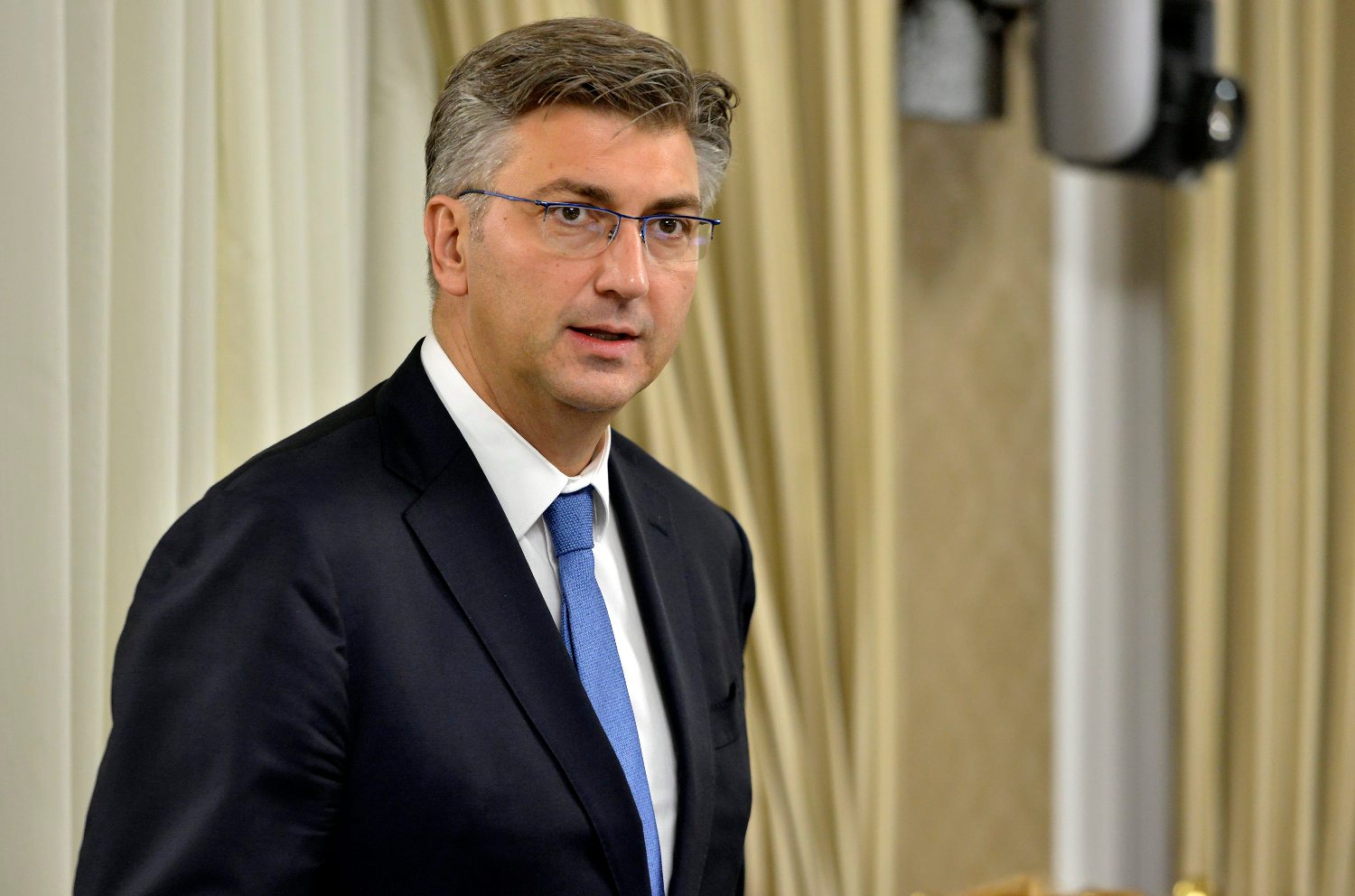
Indeed, he claims that "they worked conscientiously, responsibly and impartially, while preserving their own credibility and dignity of the duties they were entrusted with". Lex Agrokor was a special law designed to set up things necessary to save the biggest Croatian commercial conglomerate from disintegration.
Journalists asked the Prime Minister to comment on the most recent ruling of the Commission for the Prevention of Conflict of Interest whereby Martina Dalić and Minister of Finance Zdravko Marić had violated the principles of public conduct. Initially he said that "the Commission did not deal with the concept of conflict of interest, nor was the conflict established in the cases of the Minister of Finance and the former Deputy Prime Minister".
"As far as I know, the Commission dealt with the principles of conduct of officials, not the conflict of interest", said Plenković. "But I must repeat, when there is such an extraordinary situation, the biggest crisis since the Homeland War, the person who leads the Government has to react. People who are not in that position [should not] consider it [as if it took place] under laboratory conditions. The real problem of the situation in Agrokor is being minimized, and an [imaginary] approach to conduct in crisis situations is being pushed forward. The reality is a little different. ... No member of the Government has violated the principles of conduct — conscientious approach, responsibility, impartiality, preserving one's own credibility and the dignity of the entrusted duties — at any point. That is my opinion and I stress it very clearly."
The Government, the Prime Minister added, did not remain "at the level of petty politics and cluelessness" — unlike the opposition, in his opinion — but "resolved a big problem in a resolute fashion".
Non-disclosure agreement
The Prime Minister also stressed that the Government had the authority to set up working bodies, referring to the group working to draft Lex Agrokor. He failed to note that the Government Act did not envisage informal working bodies. If a temporary working body is established, in accordance with Article 24, Paragraph 3, it must be based on a formal decision. It has been officially confirmed that the informal working group did exist. If it did, it should have been formalized, even if its existence was temporarily kept away from the public eye.
In addition, precisely because of the "extraordinary situation, the biggest crisis since the Homeland War", the transparency of the decision-making had to be on an even higher level than usual. It is easy to understand that some room for discretion had been kept until Lex Agrokor came into force, but after that the public simply had to be informed about the members of the working group. In addition, all external [non-Government] members of the group should have signed non-disclosure agreements, given that they dealt with highly sensitive information likely to impact share values.
However, it is hardly surprising that the Prime Minister reacted as he did. As he reminded the media on Tuesday, the Commission had initiated the conflict-of-interest review against him, too — the same as the one against Dalić. The Commission has meanwhile confirmed that the procedure is on against [Most party president] Božo Petrov. The reviews and rulings could be on the agenda sometime in the first two months of 2019. The Commission initiated them, as we were told, when it had become clear that the establishment of the working group was a political decision of the then coalition partners.
Great responsibility
The Commission is likely to take the same view of Plenković's and Petrov's roles as it did of Dalić's. Only Plenković was able to make the decision on behalf of the Government and the ruling HDZ party not to formalize a working group, or to keep the names of its members confidential. Petrov, as the president of a party that was a junior coalition member, could have insisted on different decisions, or respond publicly in time. Their responsibility was thus greater than Dalić's.
The Prime Minister told the media on Tuesday he could not answer the question of whether his word was the last when the decision had been made to respect the wish for discretion of some members of the informal working group. Given that the matter is now before the Commission, perhaps the answer will be available at the next session of the Commission.
The Commission ruling has also thrown Minister of Finance Zdravko Marić — who has repeatedly hinted at his possible departure from the Government because of the constant pressure of this issue — into the fire. In Brussels on Tuesday, he said he would take legal steps to challenge the Commission's ruling. Interestingly, the Minister said he was dissatisfied with the fact that his case was consolidated with certain other cases. He may well be right; his case is not the same as that of Dalić.
Asked if he was now closer to leaving the ministerial post, Marić replied he would not associate those two matters. "I would not associate them at all," he said. "As I have said before, as the minister, I have strived to work professionally, expertly, responsibly and in compliance with legal regulations in all my activities."





Za sudjelovanje u komentarima je potrebna prijava, odnosno registracija ako još nemaš korisnički profil....